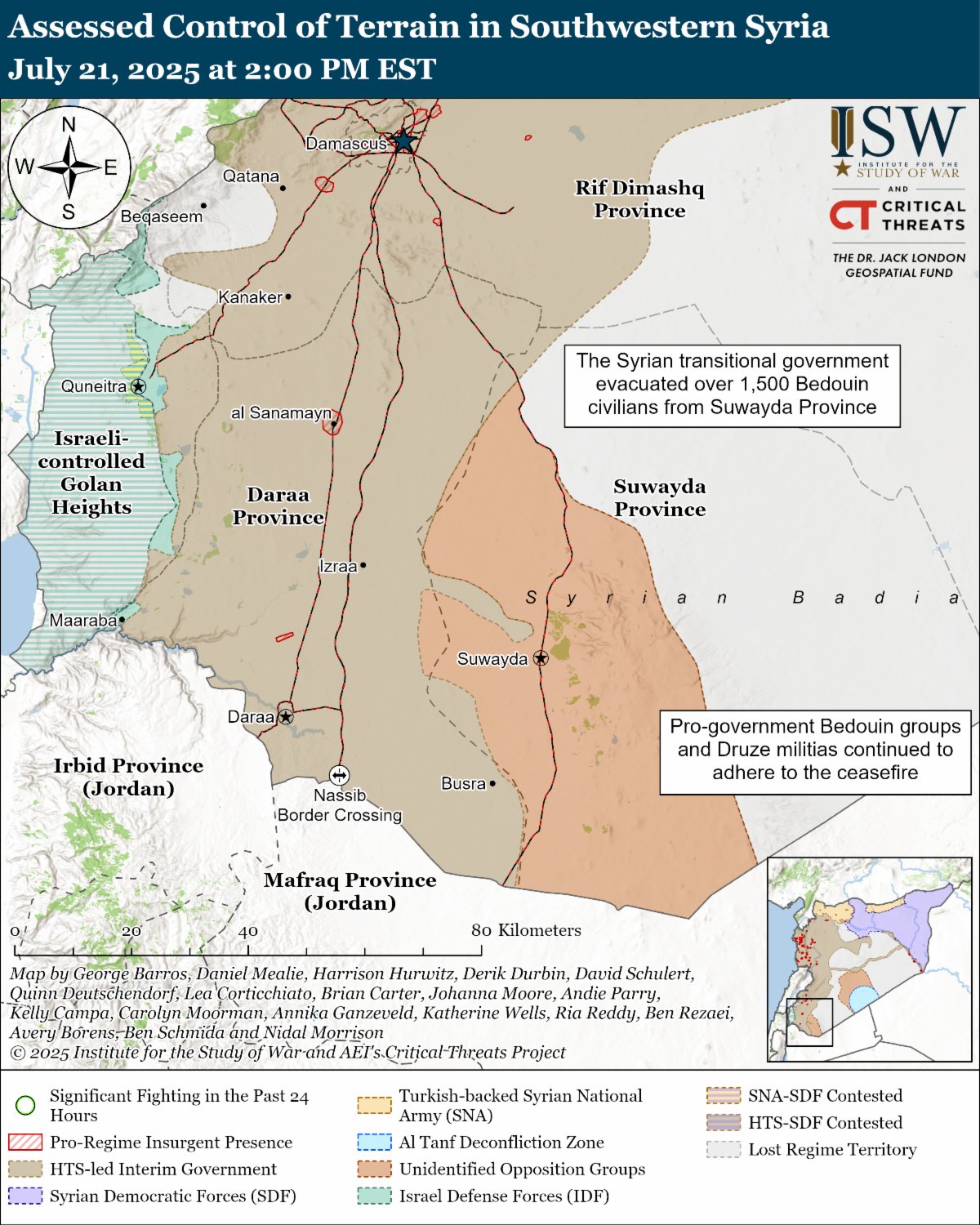The Iranian Foreign Affairs Ministry announced on July 21 that senior Iranian officials will meet with E3 (the United Kingdom, France, and Germany) officials in Istanbul, Turkey, on July 25 to discuss the Iranian nuclear issue. Iranian Deputy Foreign Affairs Minister for Political Affairs Majid Takht Ravanchi and Deputy Foreign Affairs Minister for Legal and International Affairs Kazem Gharibabadi will attend the talks. The talks come as the E3 has threatened to trigger the Joint Comprehensive Plan of Action (JCPOA) snapback mechanism to reimpose UN Security Council (UNSC) sanctions on Iran. The E3 has warned that it may trigger the snapback mechanism if Iran does not resume nuclear negotiations with the United States and make “concrete results” in the negotiations by the end of August. The E3 would have to initiate the snapback mechanism by September 3 to complete the snapback process before the mechanism expires in October 2025. Iranian Foreign Affairs Ministry Spokesperson Esmail Baghaei emphasized on July 21 that the Iran-E3 talks are separate from nuclear negotiations with the United States and stated that Iran has “no plans” to negotiate with the United States.
Baghaei also announced that Iranian officials will meet with Chinese and Russian officials on July 22 to discuss the possibility of the E3 triggering the JCPOA snapback mechanism. CTP-ISW previously assessed that Russia and China would likely not be able to prevent the reimposition of UNSC sanctions on Iran if the E3 triggers the snapback mechanism. Any JCPOA signatory can initiate the snapback process by referring Iran's non-compliance to the UNSC. The JCPOA gives the UNSC 30 days to pass a resolution to extend sanctions relief for Iran, but UNSC permanent members (the United States, the United Kingdom, France, China, and Russia) can veto such a resolution. China and Russia could therefore try to prevent the reimposition of UNSC sanctions on Iran by proposing a resolution to extend sanctions relief for Iran, but the United States, the United Kingdom, or France could veto such a resolution.
Key Takeaways:
- Iran-E3 Talks: The Iranian Foreign Affairs Ministry announced on July 21 that senior Iranian officials will meet with E3 (the United Kingdom, France, and Germany) officials in Istanbul, Turkey, on July 25 to discuss the Iranian nuclear issue. Iranian officials will meet with Chinese and Russian officials on July 22 to discuss the possibility of the E3 triggering the JCPOA snapback mechanism.
- Russo-Iranian Cooperation: Iranian Defense Minister Brigadier General Aziz Nasir Zadeh met with Russian Defense Minister Andrei Belousov in Moscow on July 21, possibly to try to secure Russian military assistance following the Israel-Iran War. Nasir Zadeh heads the Iranian Defense and Armed Forces Logistics Ministry, which oversees the Iranian defense-industrial complex and manages Iranian arms sales and purchases.
- Syria Ceasefire: The Syrian transitional government faces major obstacles in restoring rule of law, regaining trust, and healing inter- and intra-communal divisions in Suwayda Province even as the ceasefire holds. Distrust between the Bedouin and Druze communities remains high as more accounts of reciprocal atrocities surface. This inter-communal mistrust is compounded by the Druze community’s distrust of the transitional government after government forces committed abuses against Druze civilians upon deploying to Suwayda Province on July 16. This distrust challenges the government’s ability to maintain order and restore the rule of law in Suwayda.
- Syrian Transitional Government-SDF Negotiations: US Special Envoy to Syria Thomas Barrack and Syrian Democratic Forces (SDF) Commander Mazloum Abdi met on July 19 to discuss steps to restore Syrian stability and unify Syria. Barrack stated after the meeting that there could be a breakthrough in negotiations between the SDF and the Syrian transitional government "in the coming weeks."
| 




 [국방부] 발굴된 6·25전사자 유품 보존처리… 문화유산 가치 확립...
[국방부] 발굴된 6·25전사자 유품 보존처리… 문화유산 가치 확립...
 [ISW] 러시아 공세 캠페인 평가, 2025년 7월 21일
[ISW] 러시아 공세 캠페인 평가, 2025년 7월 21일